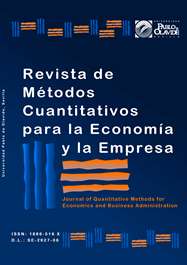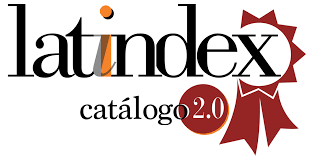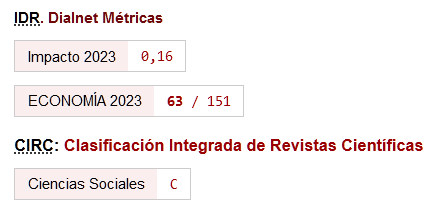Improving Working Readiness through Mastering Soft Skills: Empirical Evidence from University Students in Indonesia
DOI:
https://doi.org/10.46661/revmetodoscuanteconempresa.6426Keywords:
soft skills, working readiness, university studentsAbstract
The current study aims to examine and analyze the effect of soft skills on working readiness. Respondents of the current study were active students from several universities in Indonesia. The sampling technique used is non-probability sampling, namely convenient sampling. Data analysis were performed using multiple linear regression. The results show that learning throughout life skills, creativity, teamwork skills, and leadership skills significantly influence on working readiness. Meanwhile, problem-solving skills, communication skills, and ethics have no significant effect on working readiness. The results of the current study provide a theoretical contribution regarding the relationship between soft skills and working readiness. Future research is urgent to conduct to provide a clearer picture of the relationship between soft skills and working readiness. The current research gives students awareness to improve their soft skills. The study also provides a managerial contribution for universities to formulate the concept of developing soft skills for their students.
Downloads
References
Adnan, Y.M., Daud, M.N., Alias, A., & Razali, M.N. (2012). Importance of softskills for graduates in the real estate programmes in Malaysia. Journal of Surveying, Construction & property, 3(2), 1-13. https://ejournal.um.edu.my/index.php/JSCP/article/view/5806. https://doi.org/10.22452/jscp.vol3no2.4
Andrews, J., &Higson, H. (2008). Graduate employability, Softskill versus hard Business Knowledge: A European Study. Higher education in Europe, 33(4), 411-422. https://doi.org/10.1080/03797720802522627
Ang, M.C.H. (2015). Graduate employability awareness: a gendered perspective. Procedia-social and behavioral sciences, 211, 192-198. https://doi.org/10.1016/j.sbspro.2015.11.083.
Archer, W., & Davison, J. (2008). Graduate Employability: What do employers think and want? London: The Council for Industry and Higher Education.
Azmi, I.A.G., Hashim, R.C., & Yusoff, Y.M. (2018). The employability skills of Malaysian University Students. International Journal of Modern Trends in Social Sciences, 1(3), 01-14. http://www.ijmtss.com/PDF/IJMTSS-2018-03-09-01.pdf
Balcar J. (2016). Is it Better to Invest in Hard or Soft Skills? Economics & Labour Relations Review, 27(4), 453-470. https://doi.org/10.1177/1035304616674613
Birkett, W.P. (1993). Competency based standards for professional accountants in Australia and New Zealand, Melbourne, Australia. Australian Society for Certified Practicing Accountants.
Ciappei, C., & Cinque, M. (2014). Softskill per il Governo Dell’agire. Milano: Franco Angeli. https://sites.google.com/site/crowontoudihydna8/9788891706072-51incomGEtioso15
Clarke, M. (2016). Addressing the sof skills crisis. Strategic HR Review, 15(3), 137-139. https://doi.org/10.1108/SHR-03-2016-0026
Clarke, M. (2017). Rethinking graduate employability: the role of capital, individual attributes and context. Studies in Higher Education, 43(11), 1923-1937. https://doi.org/10.1080/03075079.2017.1294152
Coetzee, M., & Beukes, C.J. (2010). Employability, emotional intelligence and career preparation support satisfaction among adolescents in the school-to-work transition phase. Journal of psychology in Africa, 20(3), 439-446. https://doi.org/10.1080/14330237.2010.10820396
Delahoz-Domínguez, E., Zuluaga-Ortiz, R., Periñan-Luna, A., & Mendoza-Brand, S. (2022). A sigma approach to assessing the quality of higher education in Colombia. Journal of quantitative methods for economics and business administration, 33, 386-407.
Deloitte (2017). Global human capital trends. https://www2.deloitte.com/us/en/insights/focus/human-capital-trends.html
Development Economics Ltd (2015). The value of soft skills to the UK economy: a report prepared for McDonalds UK. London: Development Economics.
Ibrahim, D.H.M., & Mahyudin, M.Z. (2017). Youth unemployment in Malaysia: development and policy considerations. Outlook and policy in 2017. Annual report 2016, 99-106. https://www.bnm.gov.my/documents/20124/829203/cp04_003_box.pdf
Jameson, A., Charty, A., McGuinness, C., McSweeney, F. (2016). Emotional intelligence and graduates-employer’s perspectives. Procedia-social and behavioral sciences, 228, 515-522. https://doi.org/10.1016/j.sbspro.2016.07.079
Kahn, L.B. (2017). Demand for social and cognitive skills is linked to higher firm productivity. Yale Insights. https://insights.som.yale.edu/insights/demand-for-social-and-cognitive-skills-is-linked-to-higher-firm-productivity
MacDermott, C., & Ortiz, L. (2017). Beyond the business communication course: A historical perspective of the where, why, and how of soft skills development and job readiness for business graduates. The IUP Journal of Soft Skill, 11(2), 9-24.
Majid, S., Liming, Z., Tong, S., Raihana, S. (2012). Important of soft skills for education and career success. International journal for cross-disciplinary subjects in education, 2(2), 1036-1042. https://infonomics-society.org/wp-content/uploads/ijcdse/published-papers/special-issue-volume-2-2012/Importance-of-Soft-Skills-for-Education-and-Career-Success.pdf . https://doi.org/10.20533/ijcdse.2042.6364.2012.0147
Manpower Group (2014). Soft skills for talent, internal report.
Page, C., Wilson, M., & Kolb, D. (1993). Managerial competencies and New Zealand manages: on the inside, looking in? Auckland, New Zealand: Ministry of Commerce, Wellington [N.Z.].
Pool, L.D., & Sewell, P. (2007). The key to employability: developing a practical model of graduate employability. Eduation + Training, 49(4), 277-289. https://doi.org/10.1108/00400910710754435
Ranjit, S.M., & Wahab, A.B. (2008). Your dream job: how to get it and excel. Kuala Lumpur: TQM Consultants Sdn.Bhd. https://aiu.libcat.my/cgi-bin/koha/opac-detail.pl?biblionumber=129447&shelfbrowse_itemnumber=120335
Ritter, B.A. (2018). Designing management curriculum for workplace readiness: Developing students’s soft skills. Journal of Management Education, 42(1), 80-103. https://doi:10.1177/1052562917703679
Sail, R.M., & Alavi, K. (2010). Social skills and social values training for future workers. Journal of European Industrial Training, 34(3), 226-258. https://doi.org/10.1108/03090591011031737
Schneider, C. (2015). Falling short? College learning and career success. Washington, DC: Hart Research Associates.
Shanmugam, M. (2017). Unemployment among graduates need to be sorted out fast. https://www.thestar.com.my/business/business-news/2017/03/25/unemployment-among-graduates-needs-to-sorted-out-fast/
Succi, C., & Canovi, M. (2019). Softskills to enhance graduate employability: comparing students and employers’ perceptions. Studies in Higher Education, 45(9), 1834-1847. https://doi.org/10.1080/03075079.2019.1585420.
Teng, W., Ma, C., Pahlevansharif, S., &Turner, J. J. (2019). Graduate readiness for the employment market of the 4th industrial revolution. The development of soft employability skills. Education + Training, 61(5), 590-604. https://doi.org/10.1108/ET-07-2018-0154
Ting, S., Marzuki, E. Chuah, K., Misieng, J., & Jerome, C. (2017). Employers’s views on the importance of English proficiency and communication skill for employability in Malaysia. Indonesian Journal of Applied Linguistics, 7(2), 315-327. https://doi.org/10.17509/ijal.v7i2.8132
Tomlinson, M. (2012). Graduate employability: A review of conceptual and empirical themes. Higher education policy, 25(4), 407-431. https://link.springer.com/article/10.1057/hep.2011.26 . https://doi.org/10.1057/hep.2011.26
Turner, J.J., & Mulholland, G. (2017). Enterprise education: towards a framework for engaging with tomorrow’s entrepreneurs. Journal of Management Development, 36(6), 1-16. https://rke.abertay.ac.uk/ws/portalfiles/portal/9172736/Mullholland_EnterpriseEducation_Author_2017.pdf . https://doi.org/10.1108/JMD-09-2016-0176
Downloads
Published
How to Cite
Issue
Section
License
Copyright (c) 2022 Kusni Ingsih, Suhana Suhana

This work is licensed under a Creative Commons Attribution-ShareAlike 4.0 International License.
Submission of manuscripts implies that the work described has not been published before (except in the form of an abstract or as part of thesis), that it is not under consideration for publication elsewhere and that, in case of acceptance, the authors agree to automatic transfer of the copyright to the Journal for its publication and dissemination. Authors retain the authors' right to use and share the article according to a personal or instutional use or scholarly sharing purposes; in addition, they retain patent, trademark and other intellectual property rights (including research data).
All the articles are published in the Journal under the Creative Commons license CC-BY-SA (Attribution-ShareAlike). It is allowed a commercial use of the work (always including the author attribution) and other derivative works, which must be released under the same license as the original work.
Up to Volume 21, this Journal has been licensing the articles under the Creative Commons license CC-BY-SA 3.0 ES. Starting from Volume 22, the Creative Commons license CC-BY-SA 4.0 is used.











